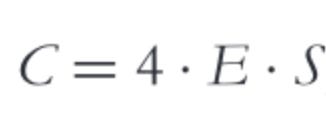This was submitted as a homework assignment for my modern complexity theory course where we were asked to answer a few questions about what sort of research we might want to pursue for our final projects. I’d love any feedback on, or questions about what I submitted!
Motivation
Grappling with increasing complexity is one of the greatest challenges facing humanity in the 21st century. The global population is growing at a steady rate while the level of connectivity and interdependence between individuals and states is rising exponentially. The Covid-19 pandemic and ensuing chaotic response gave us a glimpse of some of the concrete coordination challenges we will face as a result of living in a more complex world.
The academic field of complexity science has emerged as a new discipline in recent decades which shows incredible promise for enabling humanity to transcend its dependence on the traditional reductionist methods of science which have proven insufficient for making sense of complex interdisciplinary phenomena. However, there is a significant barrier to overcome if complexity science is to evolve into a mature discipline capable of allowing us to understand complexity in a rigorous and reliable manner. We lack simple and precise formal definitions of the term complexity. Without such definitions of the core phenomena being studied by complexity scientists, progress towards an integrated scientific theory of complexity will be hindered.
Framing the Problem
Today, researchers and practitioners tasked with measuring the complexity of any given system would be forced to evaluate and choose from a vast array of disparate measures that have been developed within different fields for various specialized purposes.1 Alternatively, they may seek to develop their own. A truly universal interdisciplinary science of complexity requires a definition, or set of definitions, that can be easily adopted by researchers from any academic field and usefully applied to any object of study.
How I will Address it
My research will focus on studying and operationalizing two proposed definitions of complexity.
The first is the “Simonian” measure of complexity. This definition is grounded in the work of Herbert Simon, a pioneer in the field of complex systems research. Simonian complexity, proposed by George Mobus, is a measure defined as “a sum of the number of components and subcomponents, along with the sum of interactions in the networks within each component, the size of the boundary as a list of interfaces, and approximation of the number of inputs and outputs, and size of the state machine”.2
The second is the “Gershensonian” measure of complexity.3 This approach is grounded in Claude Shannon’s Information theory and is defined as a normalized product of emergence and self-organization, each of which is defined in information-theoretical terms.
What I will be doing
Public blockchains are complex socioeconomic systems which represent fertile territory for systems and complexity research because of their unique properties and the vast amounts of public data they generate.4 My research will involve conducting a formal systems analysis of the Bitcoin and Ethereum blockchains in order to gather information about the systems in a structured knowledgebase from which measures of Simonian and Gershensonian complexity can be computed.5 After conducting the analysis, I will proceed to operationalize, apply, and compare benefits and challenges associated with the two complexity measures. Finally I will propose directions for future research on operationalizing these definitions, applying them in other fields, and assessing the extent to which they might be useful for helping the complex systems community develop universal formal definitions of complexity.
References
Lloyd, S. (2001). Measures of complexity: A nonexhaustive list. IEEE Control Systems Magazine, 21(4), 7–8. https://doi.org/10.1109/MCS.2001.939938
Mobus, G.E. (2022). A Model of System and a Language to Represent It. In: Systems Science: Theory, Analysis, Modeling, and Design. Springer, Cham. https://doi.org/10.1007/978-3-030-93482-8_4
Gershenson, C. (2023). Emergence in Artificial Life. Artificial Life, 29(2), 153–167. https://doi.org/10.1162/artl_a_00397
Voshmgir, S., & Zargham, M. (2020). Foundations of Cryptoeconomic Systems. https://research.wu.ac.at/en/publications/foundations-of-cryptoeconomic-systems-6
Mobus, G.E. (2022). Capturing Knowledge of the System. In: Systems Science: Theory, Analysis, Modeling, and Design. Springer, Cham. https://doi.org/10.1007/978-3-030-93482-8_8





I don't know what type of system would be easier to study for you. Bitcoin may be overwhelming to me but straightforward to you.
Cool! I especially like the emergence and article by seth Lloyd.
Tricia